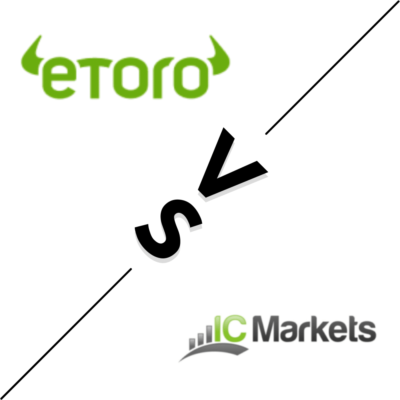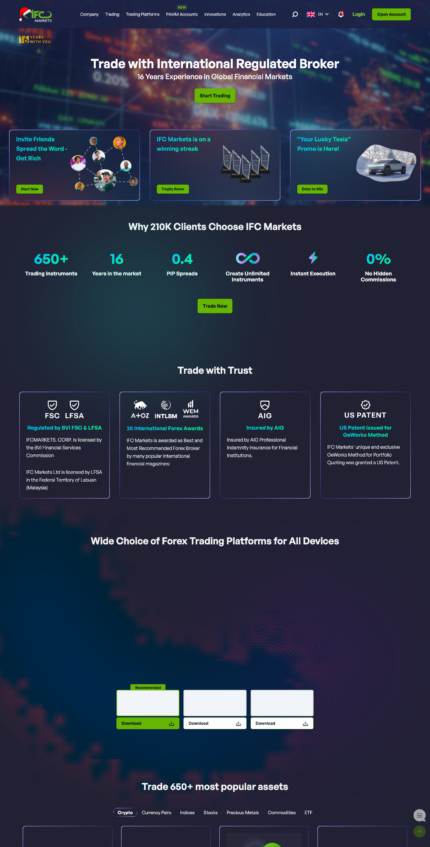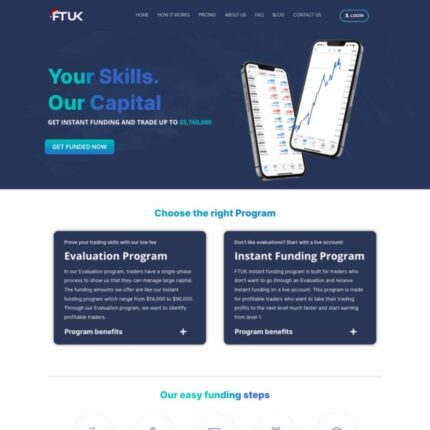Competitive spreads and minimal fees are the two most important criteria when you’re choosing a broker for trading. IC Markets and eToro both promise to provide that, but is one better? Making an informed decision on which Forex broker to choose can be challenging. So in this blog post, we will explore the differences between “IC Markets vs. eToro: A Comprehensive Comparison” asset availability, commissions, customer service, and more – to help you make your choice. Read on as we provide a comprehensive comparison of these two brokers, so you know exactly what they each have to offer!
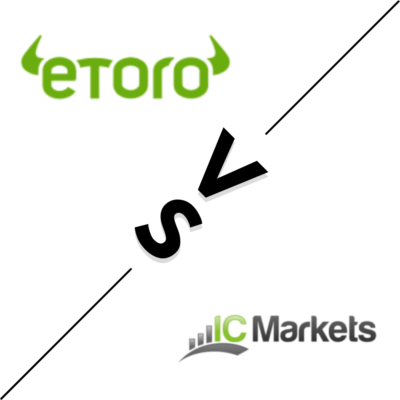
I. Compare IC Markets vs. eToro
Introduction to IC Markets vs. eToro
Before diving into comparing IC Markets vs. eToro, it’s essential to introduce each platform.
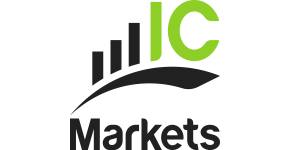
IC Markets is an Australian-based online forex and CFD broker founded in 2007. The broker offers traders access to 65 currency pairs and 10,000+ CFDs across several asset classes, including stocks, commodities, and cryptocurrencies. IC Markets is well-regulated and holds licenses from the Australian Securities and Investments Commission (ASIC) and the Cyprus Securities and Exchange Commission (CySEC).
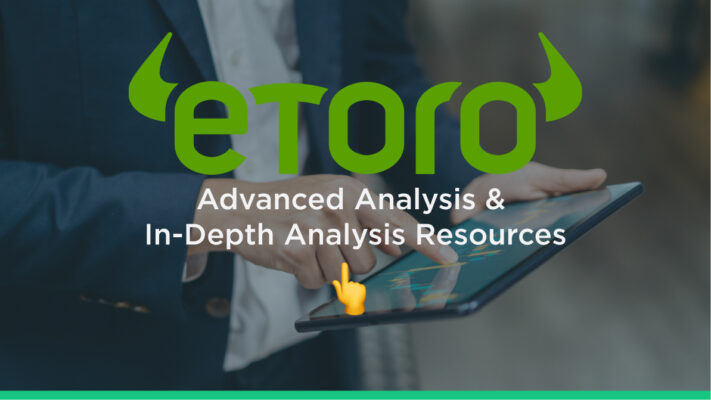
On the other hand, eToro is a social trading platform founded in 2006. It’s headquartered in Israel and has millions of users worldwide.
eToro offers a variety of financial instruments, including forex, CFDs, stocks, commodities, and cryptocurrencies. Several top-tier monetary authorities regulate the platform. Including the Financial Conduct Authority (FCA) and the Australian Securities and Investments Commission (ASIC).
Comparison Criteria
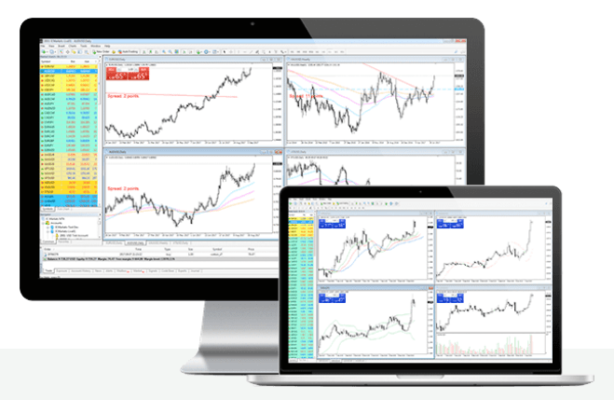
Several criteria must be considered to determine which platform is better between IC Markets and eToro. These criteria include:
-
Reliability: Reliability is a crucial factor to consider when choosing a trading platform. Both IC Markets and eToro are well-regulated and have a solid reputation in the industry.
- IC Markets is regulated by two top-tier financial authorities, ASIC and CySEC, and follows strict regulatory guidelines to ensure the safety of its traders’ funds. Additionally, IC Markets uses advanced security measures to protect its clients’ data and funds, such as segregated client accounts and SSL encryption.
- eToro, on the other hand, is regulated by several top-tier financial authorities, including the FCA, ASIC, and the Cyprus Securities and Exchange Commission (CySEC). The platform also uses advanced security measures. Such as two-factor authentication and SSL encryption to ensure the safety of its traders’ funds and data.
-
Transaction costs: Transaction costs can eat into your trading profits, so it’s essential to consider each platform’s fees when choosing a trading platform.
- IC Markets offers low spreads on its forex and CFD products, with spaces as low as 0.0 pips on some of its currency pairs. The broker also charges a low commission of $3.50 per side per lot for its cTrader platform and a 0.0% commission fee for its MetaTrader platform.
- eToro, on the other hand, operates on a spread-only model, meaning that traders do not pay any commissions on trades. However, eToro’s spreads are generally higher than IC Markets, with average distances of 3 pips for its forex products.
-
Trading platforms: The trading platform is the software traders use to place and manage their trades. IC Markets and eToro offer several trading platforms to choose from.
- IC Markets offers the MetaTrader 4 (MT4) and MetaTrader 5 (MT5) platforms, two of the most popular trading platforms in the industry. The broker also provides its proprietary trading platform, cTrader, which offers advanced features such as level II pricing and an algorithmic trading platform.
- eToro offers its proprietary trading platform, designed with social features that allow traders to follow and copy other traders’ trades. The platform is user-friendly and offers various trading tools and features, including technical analysis tools, market news, and charting tools.
-
Currency pairs: Currency pairs are the financial instruments traders use to trade forex. IC Markets and eToro offer a variety of currency pairs to trade.
- IC Markets offers 65 currency pairs for trading. Which includes significant currency pairs like EUR/USD and GBP/USD, as well as exotic currency pairs like USD/TRY and EUR/CZK. On the other hand, eToro offers 49 currency pairs for trading. Which include significant currency pairs like EUR/USD and GBP/USD, as well as minor currency pairs like USD/SEK and USD/HKD.
- Regarding transaction costs:
IC Markets offers tight spreads and low commissions on its Raw Spread account. They are making it an attractive option for traders who prefer lower transaction costs.
In contrast, eToro does not charge commissions on trades. But instead incorporates its transaction costs into the bid-ask spread, which is usually higher than IC Markets. - IC Markets and eToro offer their proprietary trading platforms and the popular MetaTrader 4 (MT4) platform. IC Markets also offers the MetaTrader 5 (MT5) platform, while eToro offers its social trading platform that enables traders to copy the trades of other successful traders. Overall, the trading platforms of both brokers are user-friendly, feature-rich, and can be accessed on desktop, web, and mobile devices.
- Regarding reliability, both IC Markets and eToro are well-regulated by reputable financial authorities. They ensured that their client’s funds were protected and that their operations were conducted fairly and transparently. IC Markets is regulated by the Australian Securities and Investments Commission (ASIC). In contrast, eToro is regulated by the Financial Conduct Authority (FCA) in the UK and the Cyprus Securities and Exchange Commission (CySEC).
- Finally, regarding the number of contracts for difference (CFDs) available for trading. IC Markets has a broader range of CFDs, including commodities, indices, stocks, and futures. eToro, on the other hand, specializes in cryptocurrency CFDs and offers a range of popular cryptocurrencies such as Bitcoin, Ethereum, and Ripple.
-
Tradable assets: The range of tradable assets offered by a broker is another crucial factor to consider. IC Markets and eToro offer a wide range of tradable assets, including forex, stocks, commodities, and cryptocurrencies.
- IC Markets offers over 10,000 tradable assets, including 65 currency pairs, CFDs on stocks, commodities, indices, and cryptocurrencies. The broker also provides access to DMA (Direct Market Access) trading for its professional clients, which allows them to trade directly with liquidity providers.
- eToro offers over 2,400 tradable assets, including 49 currency pairs, CFDs on stocks, commodities, indices, and cryptocurrencies. The platform also offers its unique CopyPortfolios, which are pre-packaged investment strategies that allow traders to invest in a group of assets rather than individual assets.
-
Account types: IC Markets and eToro offer multiple account types to cater to different types of traders.
- IC Markets offers three account types, Standard, Raw Spread, and cTrader, with different features and pricing structures. The Standard account charges no commissions but has higher spreads, while the Raw Spread account has tighter spreads but charges a commission. The cTrader account offers even tighter spreads but also charges a commission.
- eToro offers two account types, a retail account and a professional account. The retail account is suitable for most traders. In contrast, the professional account suits experienced traders who meet specific requirements. eToro’s retail account charges no commissions, and spreads are incorporated into the bid-ask feed.
-
Research and Education:
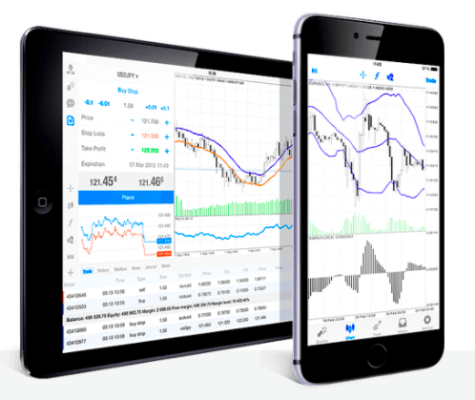
Research and educational resources are essential for traders to make informed trading decisions. IC Markets and eToro offer a variety of research and educational resources to their clients.
IC Markets offers a variety of educational resources, including articles, tutorials, videos, and webinars covering trading strategies, technical analysis, and risk management. The broker also provides clients access to daily market analysis, news, and economic calendars.
eToro offers various educational resources, including webinars, e-courses, trading videos, and trading academies. They cover technical analysis, risk management, and trading psychology. The platform also provides clients daily market analysis, news, and economic calendars.
-
Customer service: Good customer service is essential for traders to get timely and helpful support when they need it. Both IC Markets and eToro offer customer support through various channels.
- IC Markets provides customer support 24/7 via live chat, phone, and email. The broker also offers a call-back service and provides multilingual support in several languages, including English, Spanish, and Chinese.
- eToro provides customer support 24/5 via live chat, phone, and email. The platform also offers multilingual support in several languages, including English, Spanish, and German.
Conclusion
Both IC Markets and eToro are reputable online brokers that offer their clients a range of trading instruments, educational resources, and reliable customer support. However, the choice between IC Markets and eToro depends on the individual trader’s trading objectives and preferences. It’s essential to consider this carefully.

